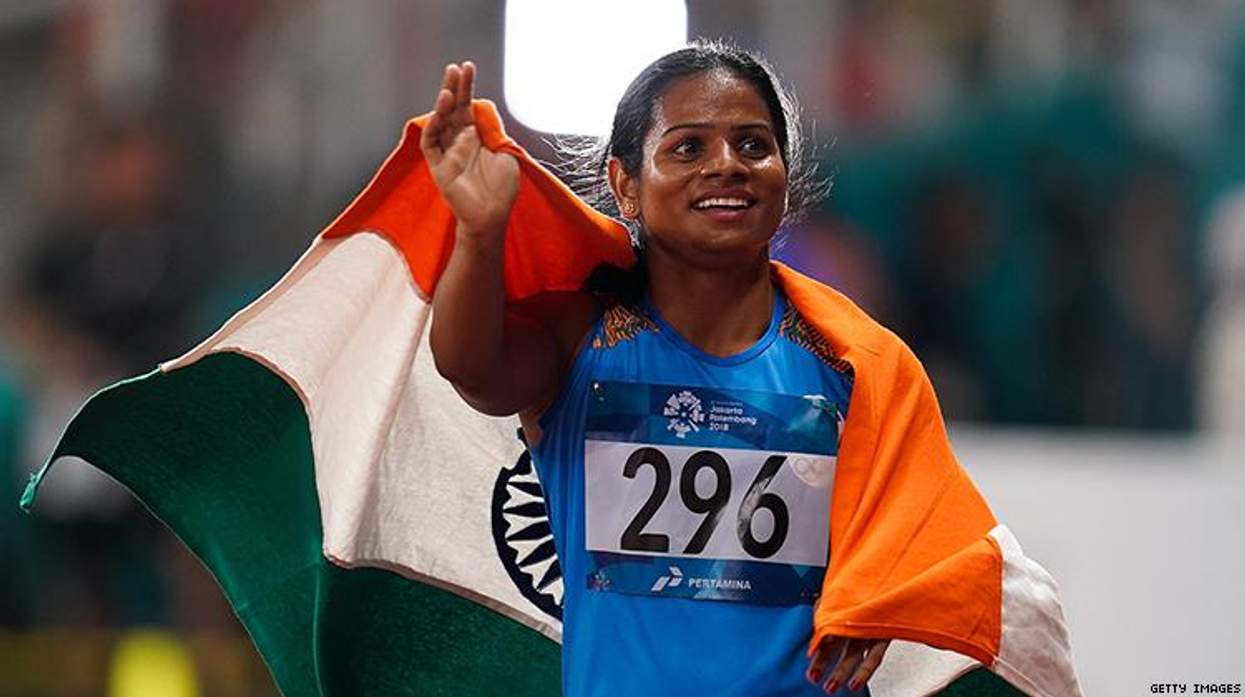Olympian at the Rio de Janeiro games and 100-meter sprint record holder Dutee Chand has become the first major athlete from India to come out since homosexuality was decriminalized there last year. The 23-year-old who holds two silver medals from the 2018 Asian Games says that she is in a relationship with a woman who is her "soul mate."
"I have found someone who is my soul mate. I believe everyone should have the freedom to be with whoever they decide they want to be with. I have always supported the rights of those who want to be in a same-sex relationship," Chand told The Indian Express. "It is an individual person's choice."
"Currently, my focus is on the World Championships and the Olympic Games but in the future, I would like to settle down with her," Dutee said of her partner whose name she wants to keep out of the media so that her relationship does not become the center of attention.
Chand's decision to speak openly about her relationship comes after India's Supreme Court decriminalized Section 377 of the Indian Penal Code last year. The 157-year-old law banned sex between consenting same-sex partners.
"I have always believed that everyone should have the freedom to love. There is no greater emotion than love and it should not be denied. The Supreme Court of India has also struck down the old law," Dutee said. "I believe nobody has the right to judge me as an athlete because of my decision to be with who I want. It is a personal decision, which should be respected. I will continue to strive to win medals for India at international meets."
While Chand has been training hard for the next World Championships and Olympic Games, her journey as a world-class athlete has been dogged by the same type of prejudice that track and field star Caster Semenya has faced.
Dutee, like Semenya, has hyperandrogenism, a condition that occurs in 5 percent to 10 percent of women, causing what's deemed as an excess of testosterone that leads to more muscle mass. In 2014 she was barred from competing in India's Commonwealth Games after officials said she did not meet the testosterone cap for female athletes.
She has since won out in the Court of Arbitration for Sport over the International Association of Athletics Federations regarding rules on testosterone caps for female competitors. The IAAF withdrew rules last year that allowed her to compete in the 100-meter and 200-meter events.
Recently, however, Semenya lost her case with the Court of Arbitration and must comply with IAAF rules that went into effect earlier this month. The IAAF's policy requires that female athletes with what is referred to as differences in sexual development would have to lower their blood testosterone to what the governing body deems acceptable for a continuous period of at least six months in order to compete in events between 400 meters and a mile.





































































Charlie Kirk DID say stoning gay people was the 'perfect law' — and these other heinous quotes